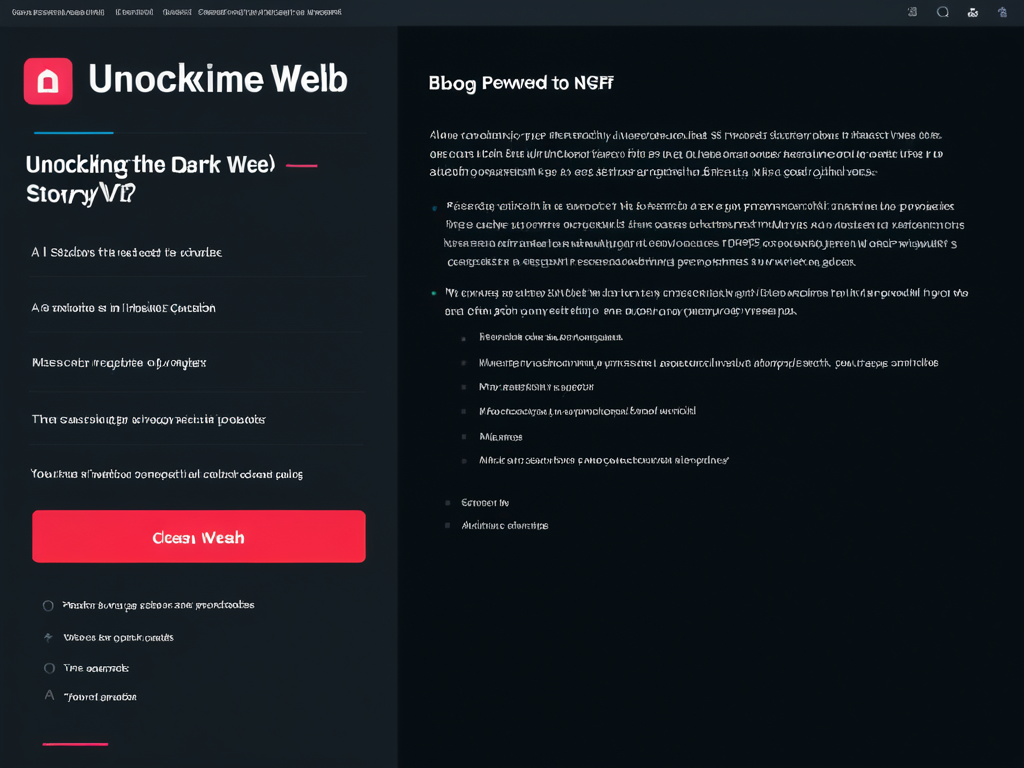Unlocking the Dark Web: A Guide to NSFW AI-Powered Storyt...

Debugging and Security Considerations for NSFW AI-Powered Storytelling
Introduction
Artificial Intelligence (AI) has revolutionized various industries, including content creation. The rise of AI-powered storytelling platforms has enabled the creation of explicit and taboo subjects, often referred to as Non-Standard Functional Workplace (NSFW). However, with this increased creativity comes a set of challenges that must be addressed.
Debugging Considerations
-
Data Quality: NSFW content is often based on user-generated data, which can be unreliable or biased. AI-powered storytelling platforms need to ensure the quality of their training data by filtering out low-quality inputs and verifying the accuracy of their results.
-
Algorithmic Bias: AI algorithms can perpetuate biases present in the training data, leading to unfair treatment of certain groups. It is crucial for developers to identify and mitigate such biases through rigorous testing and validation processes.
-
Model Complexity: NSFW content often involves complex narratives and intricate character relationships. Developers must ensure that their models are capable of handling these complexities without producing nonsensical or confusing output.
-
User Feedback: User feedback plays a vital role in improving AI-powered storytelling platforms. However, it can also lead to unintended consequences if not properly managed. For example, user feedback might inadvertently introduce biases into the system.
Security Considerations
-
Data Protection: NSFW content often contains sensitive information about individuals and groups. It is essential for developers to ensure that their systems are secure and protect this data from unauthorized access or disclosure.
-
Anonymity: Many users of AI-powered storytelling platforms prefer to remain anonymous. Developers must implement measures to protect user anonymity, such as using pseudonyms or encrypting user data.
-
Content Regulation: NSFW content is often subject to legal regulations and community standards. Developers must ensure that their systems comply with these regulations and standards by implementing appropriate filters and monitoring tools.
-
System Updates: AI-powered storytelling platforms require regular updates to stay ahead of the competition and improve performance. However, these updates can also introduce new vulnerabilities or bugs if not properly tested.
Best Practices for Debugging and Security
-
Code Reviews: Conduct thorough code reviews to identify potential security vulnerabilities and ensure compliance with best practices for secure coding.
-
Testing and Validation: Perform rigorous testing and validation of AI-powered storytelling platforms to ensure that they meet the required standards for quality, accuracy, and fairness.
-
Regular Updates: Regularly update systems to stay ahead of the competition and improve performance, but also ensure that these updates are thoroughly tested for security vulnerabilities.
-
Community Engagement: Engage with the community to gather feedback and address concerns about AI-powered storytelling platforms. This can help identify potential issues before they become major problems.
Conclusion
NSFW AI-powered storytelling platforms present a unique set of challenges in terms of debugging and security considerations. By understanding these challenges and implementing best practices for debugging and security, developers can create innovative and engaging experiences that also prioritize user safety and privacy.
About Elizabeth Hernandez
I'm Elizabeth Hernandez, a seasoned editor with a passion for the intersection of voyeur photography and erotic fiction. With a background in fine art and literature, I help curate stories that spark desire and conversation on voyeurpicture.com. Let's explore the boundaries together.
